|
Genres, Themes, Actors, and Directors:
- Cary Grant Films
- Divorce
- Irene Dunne Films
- Leo McCarey Films
- Marital Problems
- Ralph Bellamy Films
- Romantic Comedy
- Winning Him/Her Back
Response to Peary’s Review:
As Peary notes, “there’s nothing special” about the story underlying this beloved screwball comedy about a divorcing socialite couple who are too prideful to admit that they really still love each other — but it remains an enduring treat due to its “terrific” stars (Grant and Dunne) who make “amusing lines sound downright sophisticated”, and who fearlessly employ both improvisation and physical comedy. Indeed, in his Alternate Oscars book, Peary gives both Dunne and Grant awards as best actor and actress of the year, thus duly acknowledging their expert comedic work in the film. In …Oscars, he argues that while Grant’s ghostly character in the same year’s Topper was simply irritating (as is that entire film, truth be told), his “Jerry” in The Awful Truth “remains likable even when deliberately annoying Lucy [Dunne] or the other men in Lucy’s life”. And, while he’s consistently charming, Grant is “never afraid to be the total fool” — as in the classic top hat sequence (surely inspired by director Leo McCarey’s earlier work with Laurel and Hardy), or when he’s “putting on” Dunne’s unsophisticated new love interest (Ralph Bellamy).
As for Dunne, while she’s never been a favorite actress of mine, she is indeed (in Peary’s words) “charming and funny” in this film, as she gamely “[lets] fly with one-liners”, and “has a field day showing there’s fire under her ladylike facade”. Bellamy deserves special note as well for his pitch perfect portrayal of a “dull, mother-dominated” bumpkin; as DVD Savant puts it, “Bellamy deserved an Oscar for the self-effacing thankless performances he provided” in this and His Girl Friday (1940). Watch for plenty of humorous moments sprinkled throughout the otherwise predictable screenplay — including the truly inspired final bedroom scene, featuring the most creative use of a cuckoo clock in a film — ever.
Redeeming Qualities and Moments:
- Cary Grant as Jerry Warriner
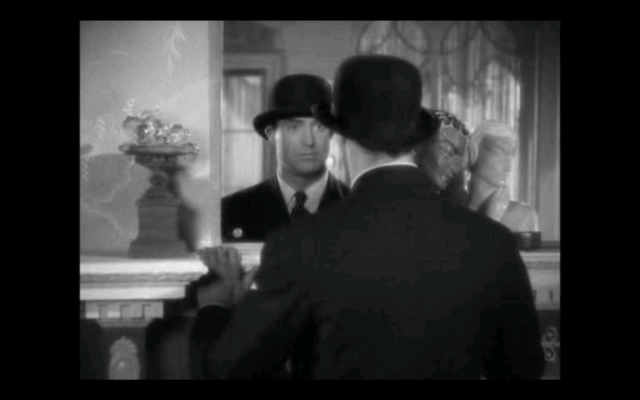
- Irene Dunne as Lucy Warriner
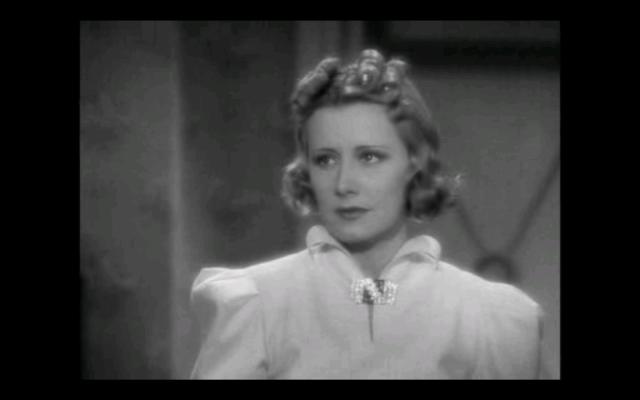
- Ralph Bellamy as Dan Leeson
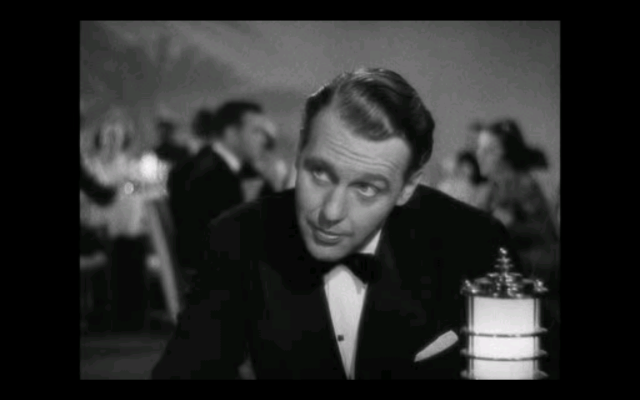
- Plenty of hilarious, largely improvised sequences
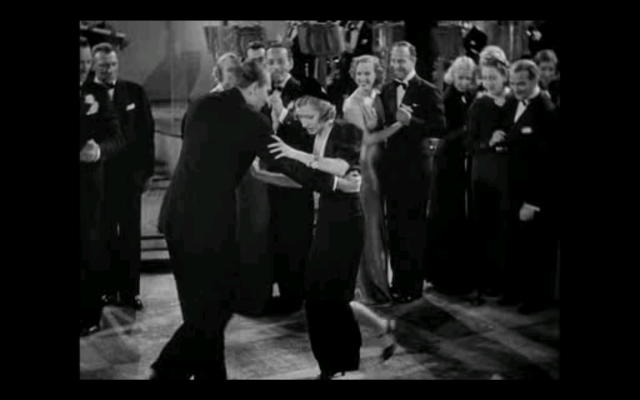
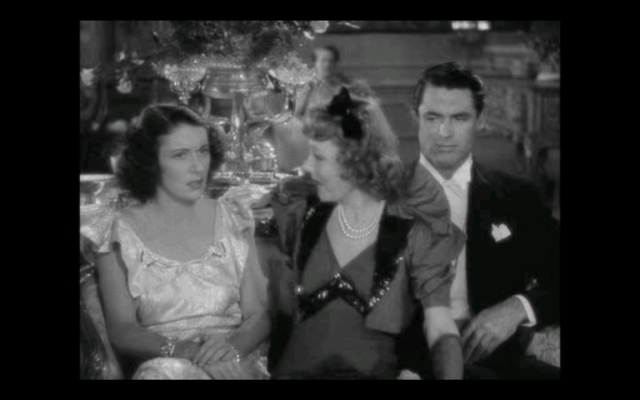

- The final “bedroom scene”
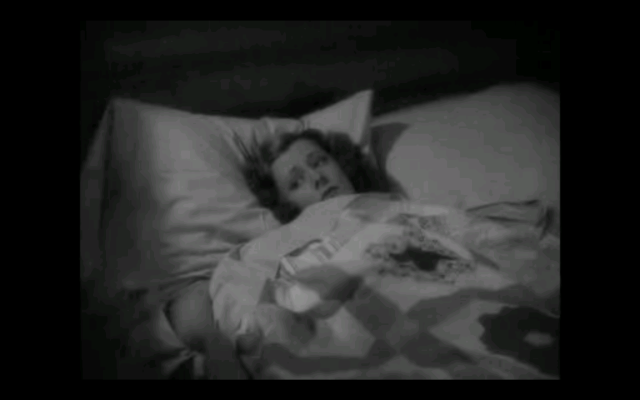
Must See?
Yes, as a fine screwball classic.
Categories
(Listed in 1001 Movies You Must See Before You Die)
Links:
|
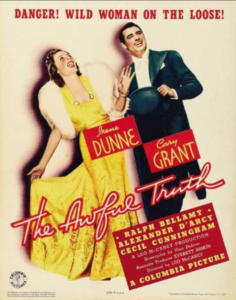







One thought on “Awful Truth, The (1937)”
As summed-up in the assessment, this is indeed “a fine screwball classic” and, thus, deserves to be a must-see. It may not be there near the top of the screwball comedy list, but it certainly has enough wacky elements going for it that make it genuinely charming and satisfying.
It almost hardly matters that the plot is predictable since this is just an extended comic situation, but leads Dunne and Grant – as well as the entire cast – seem to be having such fun, and the effect is contagious.
Fave aspects/moments (in no particular order):
– the dog, Mr. Smith (esp. when he ‘sings’); I’d say see ‘TAT’ for him alone but luckily there’s much more to enjoy.
– watching Grant being very amused (with good reason) as he watches Dunne and Bellamy high-stepping on the dancefloor.
– the off-screen fistfight in the last 3rd of the film, and the handling of the sounds of it.
– the long sequence near the end, in which Dunne shows up as Grant’s low-class ‘sister’ Lola.
– more than a fair amount of genuine wit in the screenplay, with a number of lines that serve to not only make you laugh but also tickle your intelligence.
– it’s intriguing that the film eventually side-steps what’s brought out in the opening scene (that Grant carries on with other women); sure, man and wife re-unite at film’s end…but, apparently, Grant loved Dunne before they attempted divorce – and not only *still* fed his ego elsewhere but was suspicious of Dunne doing the same. I guess they went as far as they could go with *that* little concept in 1937!
– “Marriage is based on faith and, if you’ve lost that, you’ve lost everything.” This line comes out early in the film and is echoed near the end. It has such potency – cause it holds within it something ideal: two people choosing faith in a partner because it’s completely satisfying for each of them to do so; as opposed to maintaining faith for the show of it, regardless of how you may actually feel about the one you share your life with.